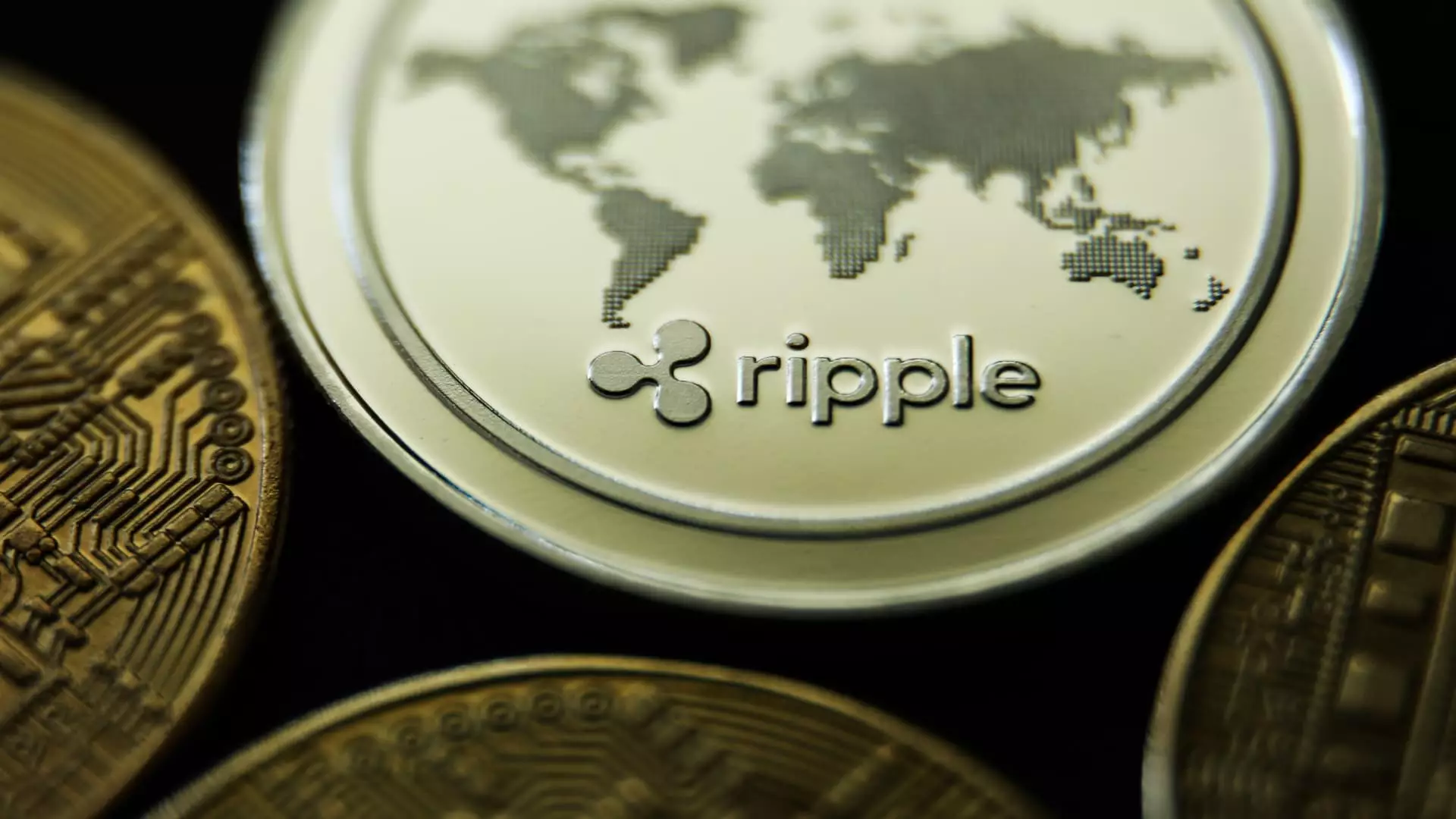In a significant step forward for the cryptocurrency landscape, U.S. blockchain startup Ripple has announced its entrance into the crypto custody domain, a sector that is rapidly emerging as critical for the future of digital finance. On Thursday, Ripple unveiled a range of services designed specifically for banks and financial technology firms, allowing them to securely manage and store digital assets on behalf of their clients. This initiative is part of a broader strategic effort to expand Ripple’s offerings beyond its traditional stronghold of payment settlements, reflecting the evolving demands of the financial ecosystem.
The Features of Ripple Custody
Ripple’s newly established Ripple Custody division is geared toward facilitating advanced custodial solutions. Key features of its offering include pre-configured operational and policy settings, seamless integration with the XRP Ledger blockchain, and robust monitoring systems designed to mitigate anti-money laundering risks. Moreover, a revamped user interface aims to enhance user engagement, making the platform more intuitive for banks and fintech firms. By centering its custody services around compliance and security, Ripple is positioning itself as a trustworthy player within a market that necessitates rigorous adherence to regulatory frameworks.
The decision to focus on custody services is particularly noteworthy given the current landscape of digital assets, where the role of custodians has become indispensable. By ensuring the safety of private keys—the cryptographic codes necessary for accessing digital assets—Ripple aims to alleviate some of the inherent risks associated with crypto investments. Custodians often extend their services beyond mere storage to include payment processing, asset trading, and ensuring compliance with diverse international regulations, making them integral to the functioning of the cryptocurrency market.
Ripple’s move into custody comes amid fierce competition, as established firms like Coinbase, Gemini, and Fireblocks have already laid significant groundwork in this area. The crypto custody market is anticipated to experience explosive growth, reaching around $16 trillion by 2030, as projected by the Boston Consulting Group. Ripple’s strategic entrance may not only provide it with a chance to capture a share of this burgeoning market but could also signify a shift in how traditional financial institutions approach digital assets.
Remarkably, Ripple has already demonstrated impressive traction within this competitive landscape. The company reported a staggering 250% year-over-year customer growth for Ripple Custody, operating in multiple countries and forging partnerships with notable clients such as HSBC and DBS. This rapid expansion underscores the increasing recognition of the necessity for reliable custodial solutions as digital assets become more integrated into mainstream financial practices.
Tokenizing Real-World Assets
In addition to traditional custody services, Ripple is betting on the future where real-world assets are tokenized on blockchain platforms. Through its custody services, clients may tokenize various asset classes, including fiat currencies, commodities, and real estate, utilizing the XRP Ledger. This innovative approach not only enhances the liquidity of these assets but also taps into the growing trend towards digital asset representation, where conventional financial assets are digitized for efficiency and accessibility.
By leveraging its existing blockchain technology, Ripple aims to provide clients with access to a decentralized exchange ecosystem that facilitates trading without intermediaries, thereby streamlining transactions and reducing costs. This aligns with Ripple’s mission of enhancing financial transactions across borders, solidifying its identity as not just a cryptocurrency but as a comprehensive financial technology enterprise.
Despite these advancements, Ripple faces significant hurdles, particularly regarding its relationship with the U.S. Securities and Exchange Commission (SEC). The fluctuating fortunes of Ripple’s native cryptocurrency, XRP, have been punctuated by legal challenges surrounding its classification as a security. The SEC’s recent decision to appeal a favorable court ruling may create volatility, yet Ripple maintains that XRP should not be subject to securities regulation. How the company navigates its ongoing legal battles will be a decisive factor not only for its XRP valuation but also for the credibility of its custody services in the eyes of potential clients.
Ripple’s foray into the crypto custody sector marks a pivotal moment for the company as it seeks to diversify its operations in a rapidly evolving market. With an array of advanced features and a clear vision for the future of digital assets, Ripple is positioned to become a formidable player in an industry poised for tremendous growth. However, ongoing regulatory challenges will require attentive navigation as the company pushes forward in this ambitious new direction.

